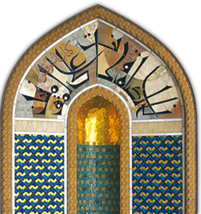Leadership in Ibadhi islam
While the Quran is the basis of all Islamic jurisprudence, differing interpretations and beliefs have resulted in different schools of thought. Groups first diverged after the Prophet Muhammad died in 632, and his followers could not agree whether to choose bloodline successors, or leaders most likely to follow the tenets of the faith.
The Sunni branch contends that the first four caliphs (Mohammed's successors) rightfully took his place as the leaders of Muslims. They recognize the heirs of the four caliphs as legitimate religious leaders. They chose Abu Bakr, the prophet's adviser, to become the first successor, or caliph, to lead the Muslim state. The Sunni imams are always chosen from among the members of the tribe of the Prophet Mohammed, the Quraish.
Shiites, in contrast, believe that only the heirs of the fourth caliph, Ali (Muhammad's cousin and son-in-law) are the legitimate successors of Mohammed.
For the Ibadhis however, the imam's ancestry is irrelevant. The Ibadhis maintain that every faithful and theologically educated Muslim is a potential candidate for the office and can be chosen as imam. The imam is a religious and secular leader with full governmental power. He is "the first among equals" in the eyes of the Ibadhis, just as humans are first among God's other creatures. Therefore the umma, the community of Muslims, selects from its ranks a believer who is best qualified for the office. If no one can meet the high demands of the office of imam, the position remains temporarily unfilled.
Similarly, an elected imam who does not meet expectations can be voted out of office.
The first imam of the Ibadhi community and also one of the main founders associated with Ibadhism is Jabir b. Zayd (died year 93 AH / 711 AD). Born in Nizwa in Oman, he later settled in Iraq. In spite of the distance, he maintained close ties with his home country. The Al-Muhallab and Al-Azd tribes both supported him in the creation of the Ibadhi school.
Jabir bin Zaid advised Ibn Ibadh on most of his political activities. Together they refuted groups like Qadarites, Mutazilites, Shiites, Mujiites, and even Kharijites. The early Ibadhiyah were a moderate group, limited in numbers.
The system of the Imamate lasted until the end of the 19th century.



